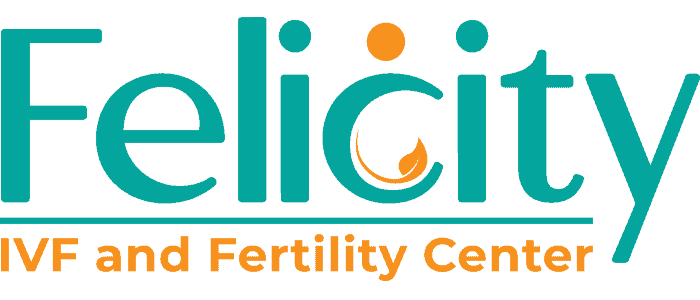IVF Treatment Cost in Hyderabad: What to Expect and How to Plan

The fertility solution IVF provides reliable help to couples who experience infertility problems. The most widespread concern among people is the IVF cost in Hyderabad. The knowledge about expenses helps couples effectively organise their journey toward getting pregnant. Here, we explore the influencing variables for IVF treatment cost in Hyderabad alongside expected financial expenses and steps to create a financial strategy.
What are the Factors Affecting IVF Costs in Hyderabad?
The IVF treatment in Hyderabad costs differently according to several essentials, including:
- Clinic Reputation and Success Rates: Medical facilities that show higher success rates typically set their fees at a higher level.
- Doctor’s Expertise: The expertise level of doctors directly impacts their consultation fees because experienced physicians cost more.
- Type of IVF Procedure: The IVF cost in Hyderabad differs among primary IVF methods along with ICSI and donor egg or sperm IVF.
- Medication Costs: The prices of fertility drugs become substantial because dosage requirements determine their rates.
- Diagnostic Tests: The combined expenses of hormone tests together with ultrasounds and blood work testing contribute significantly to the total fertility treatment cost.
- Additional Procedures: Multiple progressive procedures, including embryo freezing combined with genetic testing together with laser-assisted hatching, require patients to spend more money.
Breakdown of IVF Treatment Cost in Hyderabad
Preventive service organisations (PSOs) utilise a multitude of elements that affect the expense of IVF treatment, which prevents defining one standard cost. The IVF cost in Hyderabad varies significantly, but couples should allocate funds to meet their consultation requirements and necessary medication costs, along with laboratory examination expenses and supplemental therapies, to achieve treatment success.
A general breakdown includes:
- Initial Consultation & Tests: Patients experience initial costs that include medical consultations as well as diagnostic tests and hormone evaluations.
- Ovarian Stimulation Medications: The drugs used to stimulate ovaries, along with their length of usage, differ depending on clinical needs.
- Egg Retrieval & Fertilisation: Egg Retrieval & Fertilisation: Covers the surgical procedure, laboratory fertilisation, and embryo development.
- Embryo Transfer: The pregnancy’s successful final implantation process is known as embryo transfer.
Additional Procedures (if required):
- ICSI (Intracytoplasmic Sperm Injection): Enhances fertilisation success.
- Donor Egg IVF: The donor egg IVF treatment utilises eggs from donor individuals when medical requirements demand it.
- Embryo Freezing: The practice of embryo freezing provides patients with the ability to maintain their fertilised embryos until they need them later.
- Genetic Testing (PGD/PGS): Genetic testing (PGD/PGS) enables doctors to pick the healthiest embryos for transferring into the womb.
How to Plan Financially for IVF?
All patients planning infertility treatment must budget properly since fertility treatments cost a significant amount. Here are some tips:
- Compare IVF Clinics in Hyderabad: Research different IVF clinics located in Hyderabad to inspect both success statistics and pricing structures.
- Check for Insurance Coverage: Health insurance coverage now extends to some of the costs associated with IVF procedures.
- Opt for EMI Options: Electing to pay through EMI schemes is a financial relief program that several fertility centres provide for their patients.
- Look for Package Deals: The clinic sometimes presents reduced package prices that combine multiple IVF cycles.
- Seek Government Schemes: Look for nationwide government programs that provide fertility support to the general public.
How to Find the Best IVF Clinic in Hyderabad?
A successful outcome from IVF treatment depends heavily on selecting the accurate IVF clinic in Hyderabad. Consider the following factors:
- Clinic Success Rates: Physicians should focus on facilities that achieve strong pregnancy results per cycle.
- Advanced Technology: The clinic should utilise contemporary IVF technology and high-tech equipment.
- Personalised Treatment Plans: Patients should choose clinics that develop treatment plans according to their requirements.
- Qualified Specialists: Experienced medical professionals as well as embryologists at the clinic increase treatment success rates.
- Patient Reviews: Reading feedback from patients generates helpful information regarding service quality.
What are the Emotional and Psychological Aspects of IVF treatment?
Undergoing IVF can be emotionally and mentally challenging for couples. Managing stress, maintaining a positive outlook, and having a strong support system can make the journey smoother. Here are some ways to cope with the emotional aspects of fertility treatment:
- Seek Support Groups: Connecting with others undergoing IVF can provide encouragement and shared experiences.
- Consider Counselling: Professional counselling can help manage anxiety and emotional stress.
- Maintain a Healthy Lifestyle: Proper nutrition, exercise, and relaxation techniques can support mental well-being.
- Open Communication: Discussing concerns with your partner and doctors can help ease worries and foster mutual support.
Felicity IVF: Choosing the Right Fertility Clinic
People making decisions about IVF need to comprehend the expense of this treatment in Hyderabad. The IVF cost in Hyderabad depends on various factors, which include the clinic’s standing within the industry along with what specific procedures need to be implemented for each patient. You need to make financial arrangements before selecting a clinic with success rates and affordable price options.
Investors seeking fertility treatment should opt for Felicity IVF & Fertility Center where they can receive extensive care alongside state-of-the-art technology from knowledgeable doctors throughout their path to parenthood. The patient-orientated care model at Felicity, together with their pay-by-knowing model, provides Hyderabad couples with top-quality fertility solutions.
The strategic selection of a clinic combined with proper planning will boost your chances of IVF success combined with cost management.
FAQS
The IVF cost in Hyderabad varies based on clinic reputation, doctor expertise, medications, diagnostic tests, and additional procedures like ICSI or embryo freezing.
Some insurance policies now offer partial coverage for IVF treatment costs in Hyderabad. Patients should check their policy terms or consult their provider to understand if fertility treatments or medications are covered under their plan.
To manage IVF treatment costs in Hyderabad, compare clinics, explore EMI options, check for insurance coverage, and consider package deals. Some clinics, like Felicity IVF, offer flexible payment plans and discounts for multiple IVF cycles.
